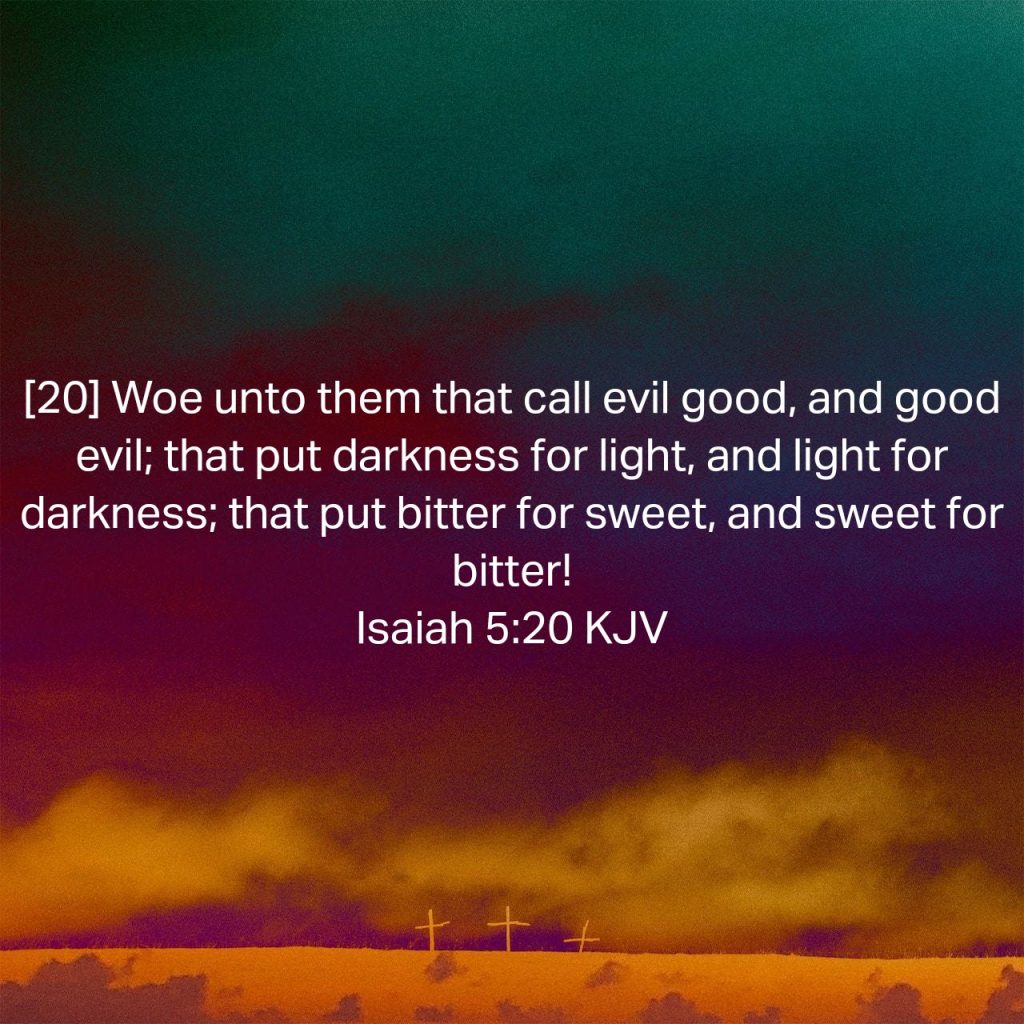
“Woe unto them that call evil good, and good evil; that put darkness for light, and light for darkness; that put bitter for sweet, and sweet for bitter!”
Introduction
Isaiah 5:20 issues a stern warning against moral inversion, where individuals mislabel evil as good and good as evil, leading to societal and ethical confusion.
Interpretation
This verse condemns those who distort moral values, equating evil with good and vice versa, thus creating confusion and undermining ethical standards.
Modern Day Application Across Various Fields
1. Theology
Reinforces the importance of maintaining clear moral and ethical distinctions as outlined in Scripture.
2. Philosophy
Promotes the exploration of objective moral truths and the dangers of moral relativism.
3. Psychology
Highlights the psychological consequences of moral confusion and the importance of a clear moral compass for mental health.
4. Education
Advocates for teaching clear ethical principles to help students discern right from wrong.
5. Leadership
Advises leaders to uphold and promote clear moral standards, avoiding the distortion of ethical values.
6. Social Sciences
Studies the impact of moral clarity and confusion on societal behavior and cohesion.
7. Communication
Emphasizes the importance of truthful and accurate communication, avoiding the manipulation of moral values.